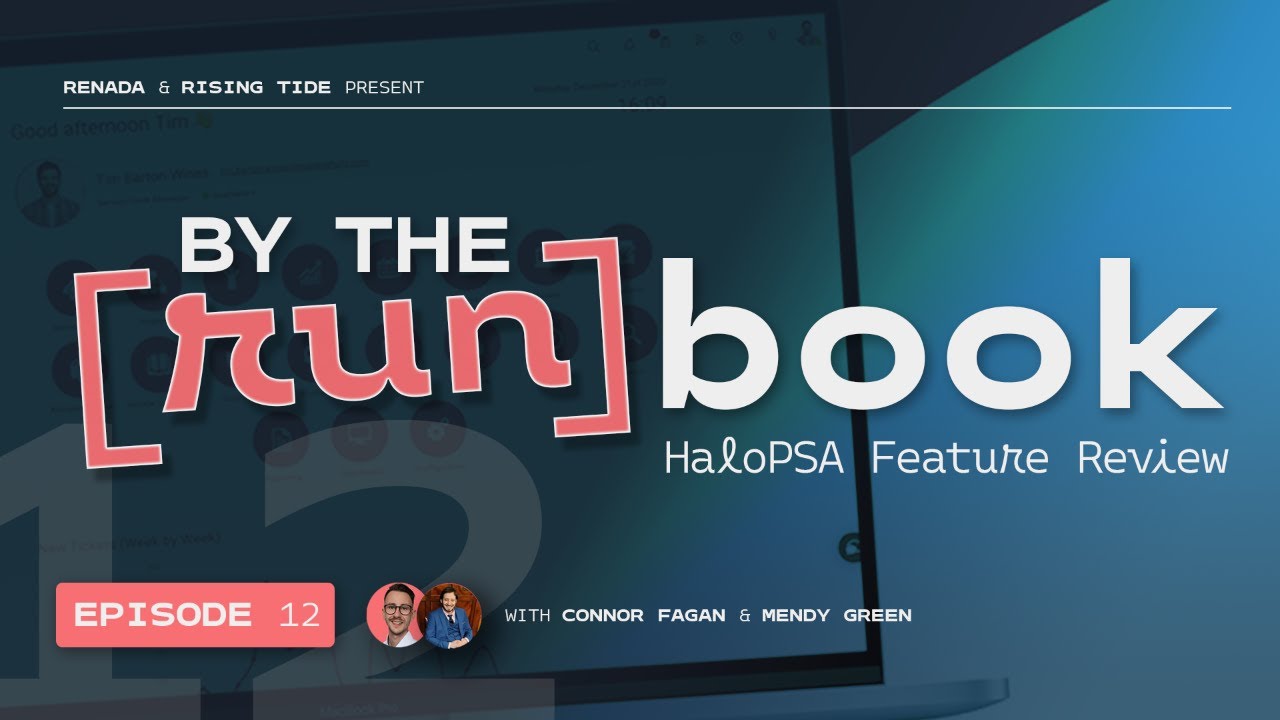By
El Copeland
October 28, 2024
•
20 min read
Fundamental Skills

The article you've stumbled across is the first in a collection of five blog posts meant to be an extension of The Care and Feeding of Meat Computers series which I’m releasing on the Rising Tide YouTube channel, born from a talk I shared at MSPGeekCon 2023. These companion guides are intended to help provide links to resources, research, and books that informed parts of this collection. The goal is to give you enough information and connections so you can dig into these concepts, including things that I cut from the talks for time or other organizational, boring reasons. I am also going to include some questions at the end of each guide to help you facilitate conversation with your team or to further deepen it!
Before we go much further, it's important to me to also extend my gratitude to the people who helped me make sure this talk happened in the first place. Heather and Brian at Gozynta encouraged me as I wrote and honed this concept the first time and generously sponsored me to attend MSPGeekCon and give this talk. Matt Fox, for the reliable perspective, fresh jokes, and tots. Alicia Gregory for academic and psychological insight, a cache of useful journal articles, and listening to me cry basically bi-weekly for nearly a decade.
Of course, last but not least, my business partner, Mendy Green, for believing in me and that this concept needed to see the light of day at all instead of just our five-minute-long WhatsApp voice notes.
If you’re here, there’s a good chance you’re involved in technology, whether you follow Rising Tide, are a part of the MSPGeek community, or otherwise found this series while searching the depths of the internet. Regardless of who you are or where you’re from, come on in, make a cup of something warm, and have a seat. I hope that you will find each word expressing my sincere love to the tech community, specifically to those often-unsung heroes, the nerds whose daily, Sisyphean job is to balance the science behind tech with the increasingly important art of human understanding.
This series is for those of you who may feel (or those of you who manage and collaborate with those who feel) more at home with your hard skills compared to soft skills. It’s completely understandable: in our society, and especially in tech, we tend to believe hard skills are the “real” skills, while soft skills are secondary or nice-to-have. But don’t let your imposter syndrome about the places you feel weak dictate what is real or true! Just because something can easily be expressed through certifications doesn’t mean they are more valuable or will help you live a more fulfilling life. In fact, you may have even been called “gifted” when it comes to technology, and as such, choose to feed that part of you, first. If we consider some of the theories about giftedness, specifically Renzulli’s three-ring conception of it, giftedness for any skill comes from ability, creativity, and commitment.

My goal with this series is to challenge the view that hard skills are respected and most prized; and to encourage us to reframe “soft skills” not as something separate or less-than, but as essential, accessible, and attainable, intertwined with our technical expertise. We may not come by it naturally, as in an above-average-ability, but with creativity and commitment, we can develop these skills as well!
I specifically want us to look at soft skills in a way that outright refuses the notion that as you are, you are bad, undesirable, or unacceptable. While there are certain social standards that you may have been trained to adhere to, I want you to put those rules aside for these conversations. If you’ve ever felt like you’re expected to fit a mold to be successful—whether to be more charismatic, more structured, or even more proper—this series is for you.
I’ve held a ton of jobs in a wide variety of industries and tiers of responsibilities. Despite my breadth and depth of experience and knowledge, I’m not interested in being revered as an expert. Experts tell you what you’re supposed to do and exactly how you’re supposed to do it to guarantee success. I’m sure my disdain for this snake-oily social power dynamic shows consistently in things I say and my approach in this series. Why the sass regarding experts? I want you to know and truly embrace the fact that your value as a tech professional goes beyond fitting into the boxes people want to put you in. Your value as a tech professional goes beyond fitting into the boxes you want to put yourself in! I’m not an expert, experts want you to be like them. I want you to be like you.
You have these skills: you have social skills, you have people skills, you have soft skills. Regardless of if they fit into what some expert tells you is “correct,” if you’re a little bit weird, I want you to embrace it.
You’re here because you’re passionate about technical solutions, and you’re here because you’re looking for ways to develop further yourself and your community. I propose to you that your passion for technology is actually a powerful tool, if not the most powerful tool, in developing your soft skills. You can use your technical intelligence to boost your Emotional Intelligence.
It’s time to stop kidding ourselves that hard skills are technical and measurable while that soft skills are just a “personality trait” exemplified by gentle people like women and mothers. This belief implies two terrible, not-true things:
This is a disservice to you and those who you work with. You have soft skills, and developing and enhancing them is vital to your personal and professional growth. Here’s the thing: soft skills are hard. But that doesn’t mean they aren’t worth shaping or that they’re out of your reach as a technical, linear-minded person. Soft skills are hard-won through life experiences, loss, pain, and PRACTICE.
These concepts fold neatly into coding ideologies like Human-Centered Design and Human-Computer Interaction. You are technical, you are practical. Humans are hard. Let’s reframe this to help ourselves be more successful. I propose that soft skills aren’t the opposite of hard skills, but an evolution of them, and if you find them hard, perhaps you just need to look at humans as what they are: complex meat computers that really just want to do what they can to survive and thrive in the world they’ve inherited, just like you.
So together, let’s flip the script and let’s start with reframing a questions we often ask, to see how we can better harness our natural penchant for hard skills and alchemize them into above average soft skills.
Join me as we elevate the question, “Why aren’t people more like computers?” to “Why might people be too much like computers?” Instead of following a set of rules, I want you to ask yourself, “what if I treat people with just as much care and curiosity as I treat computers? What would my life, my job, and my relationships look like, instead?”
To deepen the concepts discussed in this series, here are several resources for further exploration:
Questions for Team Reflection
If you’re watching this series with a team, here are some questions to guide your discussion and help you make the most of these ideas:
That’s it for Episode 1! Tune in for our next Episode: The most expensive piece of technology you’ll ever see.

This discussion guide is part of Rising Tide’s Fall 2025 book club, where we’re reading The Go-Giver by Bob Burg and John David Mann.
If you’re just joining us, here are a few pages you’ll likely benefit from:
In the final chapter of The Go-Giver, we meet Claire, who is on her way to meet the partners behind an amazingly (even stratospherically) successful new business: Rachel’s Famous Coffee. Chapter 14 ties up the story of The Go-Giver in a neat little bow, showcasing the stratospheric success possible, and encouraging us to share the secret with others along the way.
Use these open-ended prompts to guide reflection and conversation. Remember, there are no right answers!
Rising Tide helps MSPs and service-focused teams build better systems: the kind that align people with purpose.
Every Friday at 9:30 AM ET, we host Rising Tide Fridays as an open conversation for MSP owners, consultants, and service professionals who want to grow both professionally, technically, and emotionally. Our book for 2026 Quarter 1 is Think Naked: Childlike Brilliance in the Rough Adult World by Marco Marsan.
If that sounds like your kind of crowd, reach out to partners@risingtidegroup.net for the Teams link.
Bring your coffee and curiosity…no prep required.

This discussion guide is part of Rising Tide’s Fall 2025 book club, where we’re reading The Go-Giver by Bob Burg and John David Mann.
If you’re just joining us, here are a few pages you’ll likely benefit from:
In Chapter 10, Joe learns the Fourth Law of Stratospheric Success — “The Law of Authenticity” — from a now-successful saleswoman who found this truth when she was at her lowest.
Use these open-ended prompts to guide reflection and conversation. Remember, there are no right answers!
Rising Tide helps MSPs and service-focused teams build better systems: the kind that align people with purpose.
Every Friday at 9:30 AM ET, we host Rising Tide Fridays as an open conversation for MSP owners, consultants, and service professionals who want to grow both professionally, technically, and emotionally. In Fall/Winter 2025, we’re walking through The Go-Giver, chapter by chapter.
If that sounds like your kind of crowd, reach out to partners@risingtidegroup.net for the Teams link.
Bring your coffee and curiosity…no prep required.

In Episode 12 of By the [run]Book, Mendy and Connor continue their deep dive into HaloPSA release v2.204, covering the second half of this massive update. They break down critical enhancements across SLAs, custom fields, assets, chat, Google Workspace, billing, documentation, and integration workflows. This episode is ideal for MSP operators, service managers, and Halo administrators looking to understand not just what changed—but how those changes impact real-world processes.
Here's a few Key impactful updates featured in this episode:
· ATimezone option has been added to Agent details (998146)
Ensures holiday/PTO allowances calculate correctly based on each agent’s actualtimezone—preventing mid-day rollovers for distributed teams.
· Improvementsto the Google Workspace integration (987605)Updated user-matching options to now allow the use of both username and email.
· Restrictedasset relationship types (897671)
Allows admins to control which relationship types can be used between differentasset classes, preventing illogical or messy asset mappings.
· Separatepermission for impersonating users (747369)Impersonation no longer requires full admin rights, enabling safertroubleshooting and testing by leads, onboarding teams, or QA staff.
· Optionto select different email templates when sending invoices (574826)
Staff can now choose from multiple invoice email templates—helpful for voided,corrected, or specialized billing communications.
· NewSLA setting: user replies reset the response target even when on hold (920093)
Fixes unpredictable SLA behavior by ensuring user updates always reset theresponse timer, eliminating false breaches.
· Ticketlist filters now support Client, Site, and User custom fields (965190)
A major visibility upgrade that allows filtering by Client, Site, User customfields, and other options.
· Pre-paybalance type can now be set per contract (758980)
MSPs can now choose hours or currency on a per-contract basis—ideal for clientswith mixed prepay models like retainer hours and project funds.
Watch Now: By the [run]Book: Episode 12
For easier tracking, check out haloreleases.remmy.dev to filter and search HaloPSA updates by ID, version, and keyword.
Full Feature review:
A Timezone option has been added to Agent details which initially will only be used to ensure that the Holiday allowance calculations are correct | v2.204 #998146 | 2:04
Ensures holiday allowance calculations respect each agent’s timezone.
Various Embeddable Chat Widget API improvements | v2.204 #993194 | 7:42
Adds more customization and event capabilities to Halo’s external chat widget.
Various improvements to SAF management | v2.204 #987889 | 9:23
Enhances the Service Architecture Framework.
Improvements to the Google Workspace integration | v2.204 #987605 | 13:02
Adjusts Google user matching behavior.
Added a ticket setting to show the department a team belongs to when assigning/re-assigning | v2.204 #983485 | 15:29
Displays department context during ticket assignment.
The FAQ list now shows in the portal URL when navigating through the Knowledge Base | v2.204 #983353 | 16:02
Improves navigation clarity when browsing FAQs.
Slack notifications can now be triggered by CRM Note updates, Site updates and specific Agent Actions | v2.204 #982479 | 16:27
Expands Slack integration coverage.
Added Agent Team Mappings to Microsoft Entra ID | v2.204 #979667 | 16:36
Allows syncing team membership from Entra ID.
The change management fields ‘Impact’ and ‘Risk’ can now be used in Risk Score calculations | v2.204 #975163 | 19:31
Improves accuracy of Change Management scoring.
Added a general Ticket setting that when enabled, the Can Edit Advanced Ticket Details permission is required to bulk change Ticket Priority | v2.204 #971319 | 21:58
Adds protection against mass-priority edits.
Charge Rates/Types can now be ordered by a sequence number set on the Charge Rate/Type setup | v2.204 #969791 | 22:33
Enables custom sorting of charge rates.
Minor report Chart filtering UX improvements | v2.204 #969514 | 23:20
Improves visual continuity when filtering dashboard charts.
You can now use Client, Site and User Custom Fields as criteria for Ticket List filters | v2.204 #965190 | 24:58
Significantly expands filter capabilities.
Added option to send an Email to a specified Agent when a Runbook fails | v2.204 #957580 | 27:45
New notification option for automation failures.
Added a notification trigger for when a User uploads a document to a specific folder | v2.204 #955651 | 27:53
Useful for client-upload workflows.
Added Access Control to Folders when using Document Management | v2.204 #955650 | 28:09
Brings permissioning to folder-level document storage.
‘Top Level’ field now available when creating an Account/Prospect from the new Opportunity screen | v2.204 #923428 | 30:08
Allows proper top-level assignment for accounts/prospects.
Customer & Site level custom fields now have the option to be displayed under the customer record when logging a ticket | v2.204 #920539 | 32:06
Surfaces client metadata during ticket creation.
Added a global SLA setting to allow user updates to reset the response target regardless of whether the ticket is on hold | v2.204 #920093 | 34:13
Fixes a major SLA limitation.
Added the ability to restrict the allowed relationship types when relating assets | v2.204 #897671 | 39:30
Prevents invalid asset relationship mappings.
You can now import Service Level Agreements (SLAs) & Priorities using an XLS spreadsheet | v2.204 #841750 | 40:34
Enables bulk-import of SLA structures.
Added asset and service business and technical owners as notification recipients | v2.204 #801201 | 41:42
Provides more targeted asset/service notifications.
Improvements to the Jira Software integration | v2.204 #796046 | 43:04
Enhances mapping, syncing, and mention handling.
Unapproved holidays now show with a dotted border | v2.204 #795392 | 44:59
Better visibility in calendars.
You can now save emails from Mail Campaigns as email templates | v2.204 #762793 | 45:06
Allows reuse of campaign email layouts.
Pre-pay balance type can now be set per contract | v2.204 #758980 | 46:33
Adds contract-specific prepay logic.
You can now view the amount of hours invoiced so far on the billing tab of a ticket | v2.204 #749755 | 48:13
Adds visibility into billed time totals.
Added a separate permission for impersonating users | v2.204 #747369 | 48:37
Impersonation no longer requires full admin.
Added option to select different email templates when sending out invoices | v2.204 #574826 | 49:02
Choose among different invoice email templates.
Creating a Purchase Order from a Sales Order line will now set the Sales Order line Supplier field and updating the Purchase Order line price will update the Sales Order line cost | v2.204 #417125 | 50:38
Fixes cost/supplier syncing between SO → PO.